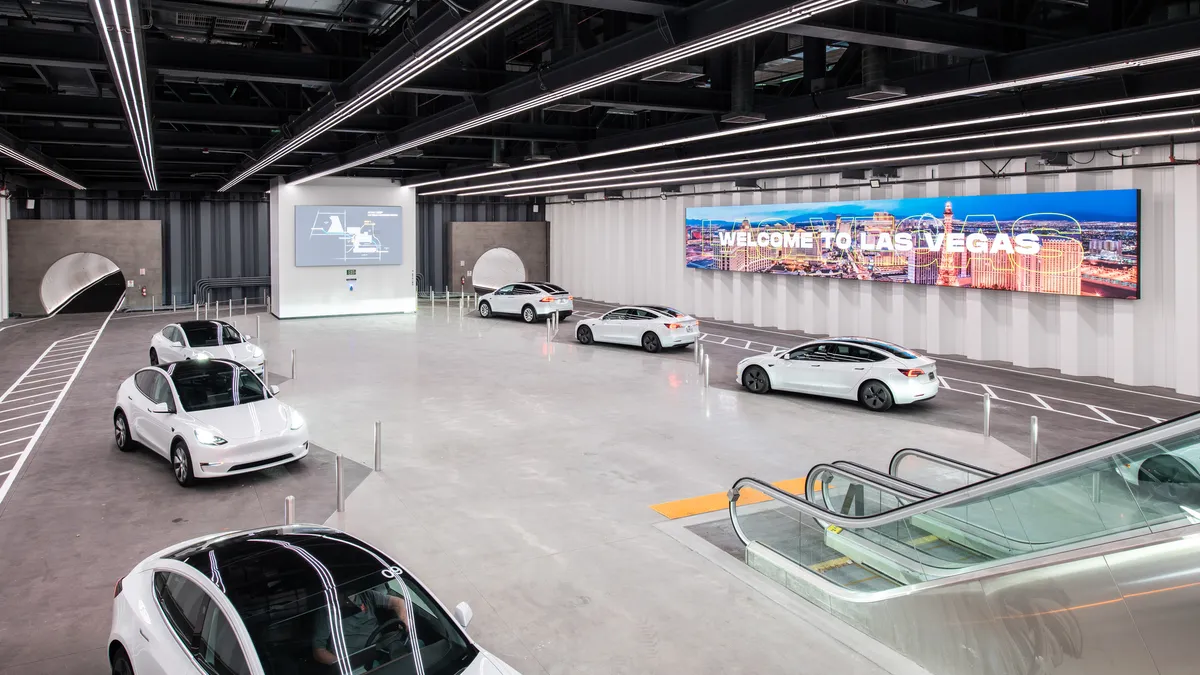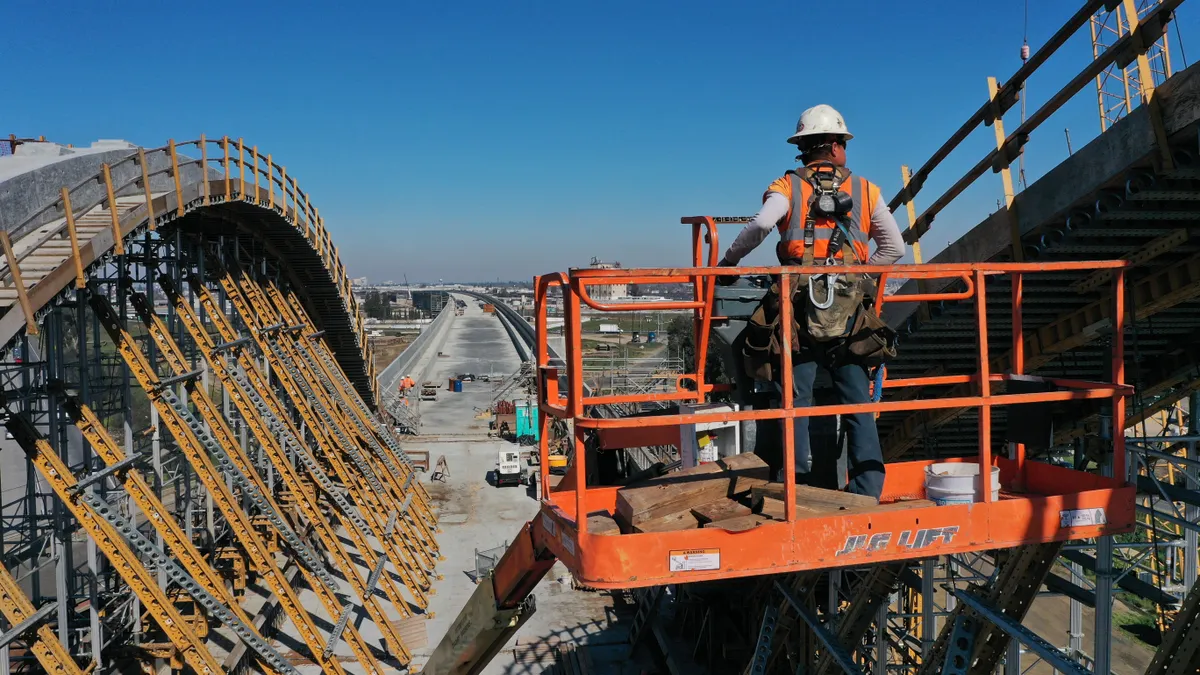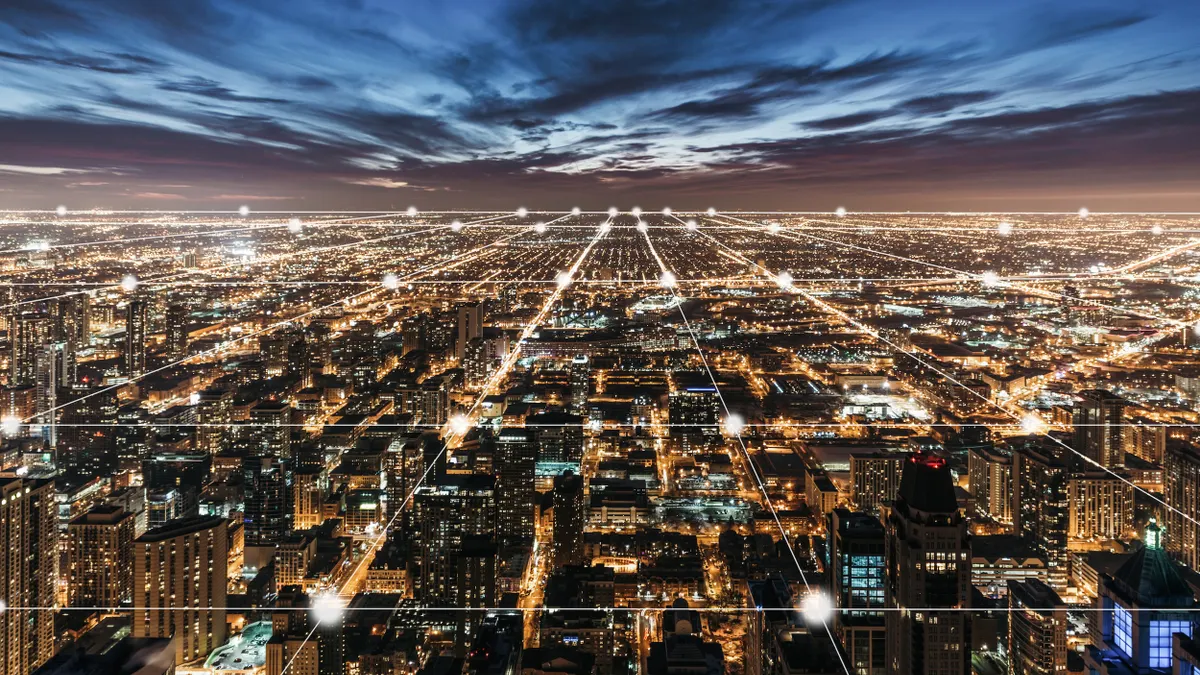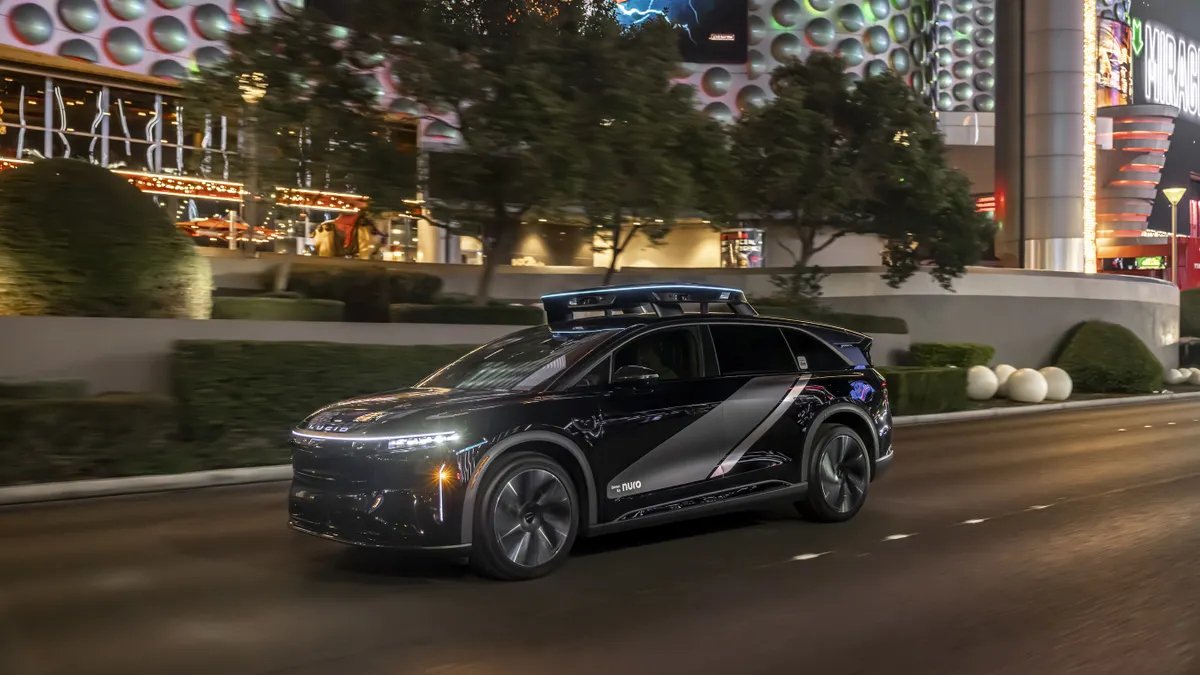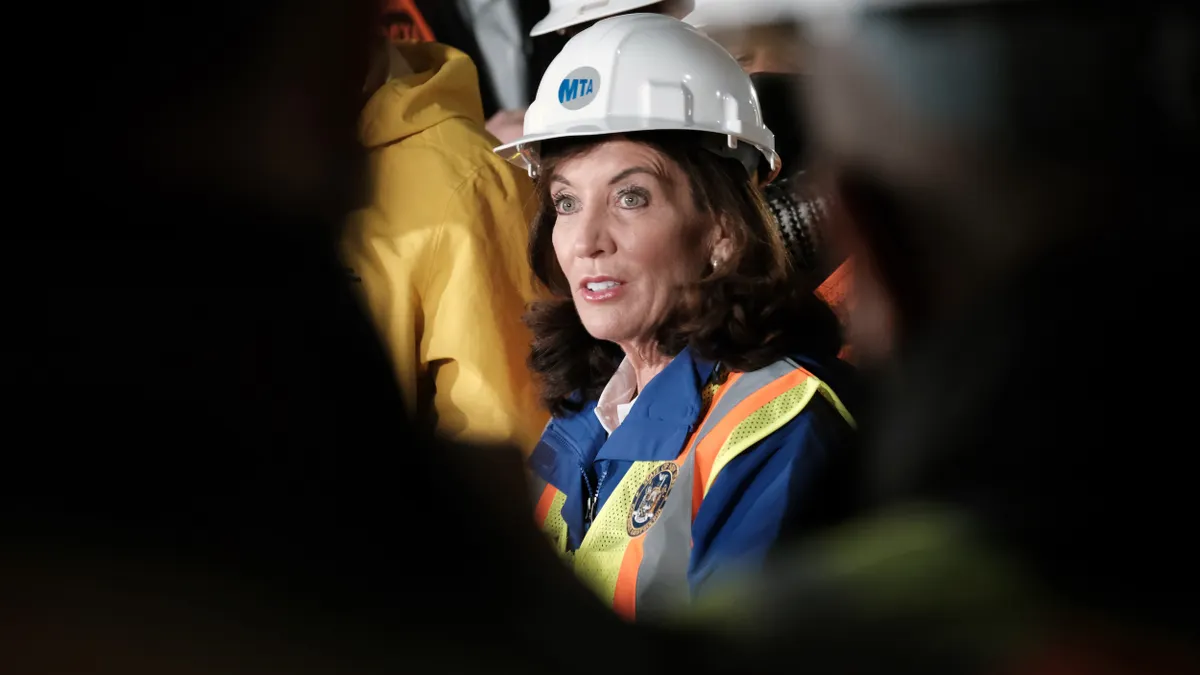Elon Musk wants to solve traffic congestion.
The richest man in the world founded the Boring Co. in December 2017, in hopes of solving traffic problems in major cities by creating underground systems. Unlike other flashy proposals to improve mass transit — which often focus on high-speed rail — Musk has looked to dig underground roadways populated by Teslas, vehicles made by another company he owns.
He has shopped the ambitious idea to cities around the country, with some projects advancing, as others stall out. Most recently, Musk has his sights set on on San Antonio as a location for the Boring Co.'s specific solution to traffic woes.
Here is a look at some of the places where Musk and the Boring Co. have worked with city leaders to get projects underway.
Chicago
In 2018, Chicago's then-Mayor Rahm Emanuel selected the Boring Co. to provide a high-speed system connecting O'Hare International Airport with The Loop, a business community in downtown Chicago.
Under the plan, autonomous vehicles would transport up to 16 passengers at over 100 mph between the two stops, as a way of connecting travelers with the city more rapidly. At the time of the proposal, the company believed it could build the tunnel for less than $1 billion, the Chicago Tribune reported.
Nevertheless, plans for the project never materialized, despite initial excitement. Prior to winning the election and becoming Chicago's new mayor, Lori Lightfoot told The Verge, "We don’t need the O'Hare Express." Her opponent, Toni Preckwinkle, said before the election that she also would hit pause on the project.
Las Vegas
The Boring Co.'s first commercial project, the $52.5 million Las Vegas Convention Center Loop, was finished in February 2020. Two, 1-mile tunnels beneath the convention center transport passengers via Tesla vehicles to the other side of the convention center grounds.
The company hoped from early on to expand the project to a full loop underneath the Strip, with multiple stops at hotels, casinos and other attractions. In late October, the Clark County Commissioners approved plans for the 15-mile transit system, setting the stage for the permitting process. No price tag has been disclosed, but it's possible that information could become public when more approvals open doors for the project.
Should the project clear all of the hurdles, it will involve 51 stops at locations like Allegiant Stadium, the University of Nevada Las Vegas and the airport. Early plans indicate as many as 10 stations would be finished and opened within the first six month of breaking ground. Afterward, Boring would add 15 to stations a year until the project is complete.
The project is anticipated to transport 57,000 passengers an hour. Rides would transport their passengers directly to their destination, without stopping at other stations like a bus or train does.
Miami
On Jan. 18, Miami Mayor Francis Suarez replied to a tweet from Musk, inviting him to come to City Hall and discuss potential ideas. Musk tweeted in response, saying he believed tunnels from the Boring Co. would alleviate congestion in and around the city.
Musk then reportedly told Suarez in February that the Boring Co. could dig the 2-mile tunnel for as little as $30 million, The Verge reported at the time. That cost is a fraction of a $1 billion estimate by local transit officials, in part inspired by the $700 million cost of the tunnel under the Port of Miami, which was less than a mile.
The proposed transportation system would connect the city's Brickell neighborhood to downtown, Grand Central Station, Miami World Center, the Omni area, Wynwood and Little Haiti, Bloomberg reported at the time.
In March, Suarez said that he wanted to use federal money to construct a potential Boring Co. tunnel under the city. He met with the company at the time to discuss the project.
Suarez had proposed the city implement a company-funded, user-fee model. Nevertheless, the project would not be under his purview. In Miami-Dade's tiered system of government, the county controls the roads. A tunneling project in South Florida could also prove risky, as the high water table means underground work is rare due to flooding concerns.
In July, Miami-Dade's transportation planning board OK'd the $88,000, six-month study of the Boring Co.'s tunneling technology, according to FloridaPolitics.com. The results of that study have yet to be seen, though the timeline anticipates they will arrive in January 2022.
Fort Lauderdale, Florida
Fort Lauderdale, Florida, Mayor Dean Trantalis met with Boring Co. executives twice in late January, and planned to visit Las Vegas to get a look at the city's completed loop, the Sun Sentinel reported. Trantalis hoped to learn if a similar project would be a good fit for the city.
In July, Trantalis tweeted that the city had accepted a proposal from the Boring Co. to build the 3-mile Las Olas Loop, an underground transit system between downtown and the beach, giving other firms 45 days to submit competing proposals.
The Boring Co. offered to build out the project for the city at a fixed price, covering any overages. The project seems to be moving forward with a $90 million price tag, according to Local 10 News. Stakeholders are hopeful the project will break ground in 2022 and take six to eight months to complete.
San Antonio
An idea reportedly surfaced in August for a Boring Co. tunnel system in San Antonio connecting the downtown area with San Antonio International Airport, San Antonio Express News reported. Now, the Alamo Regional Transit Authority is soliciting proposals for a loop, and Boring Co. unsurprisingly is interested in the project. No estimated cost has been announced.
Proposals for the project are due by Dec. 1, and if the authority selects the Boring Co., it could signal bring Musk's vision for solving traffic one step closer.



